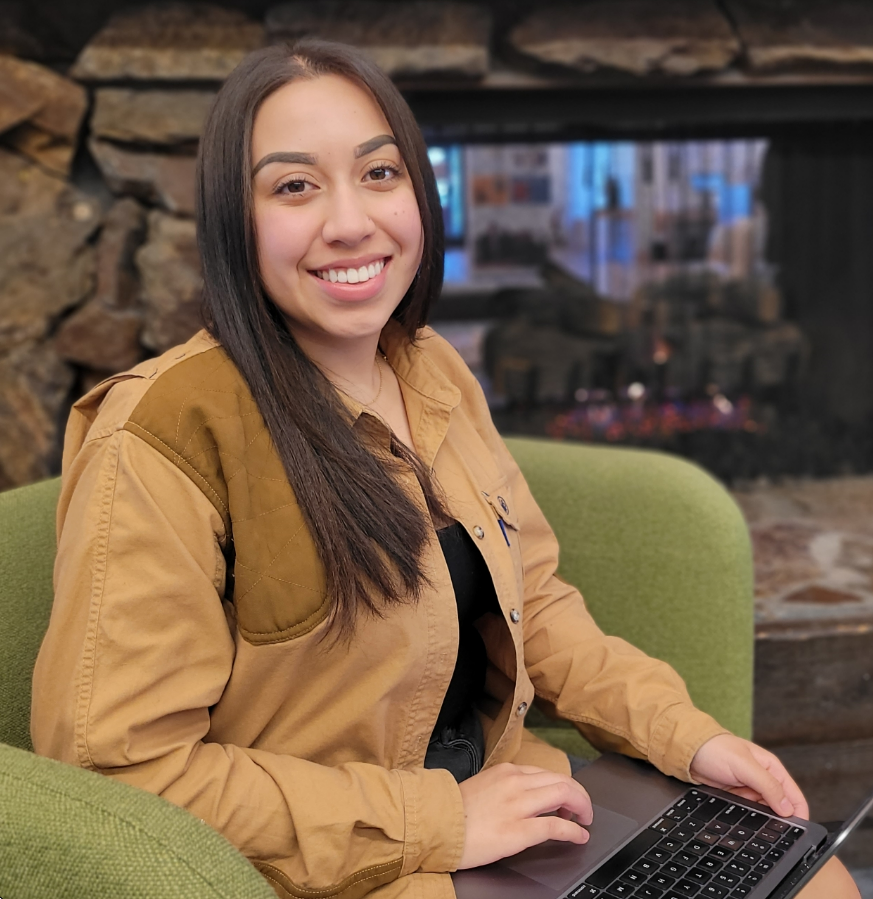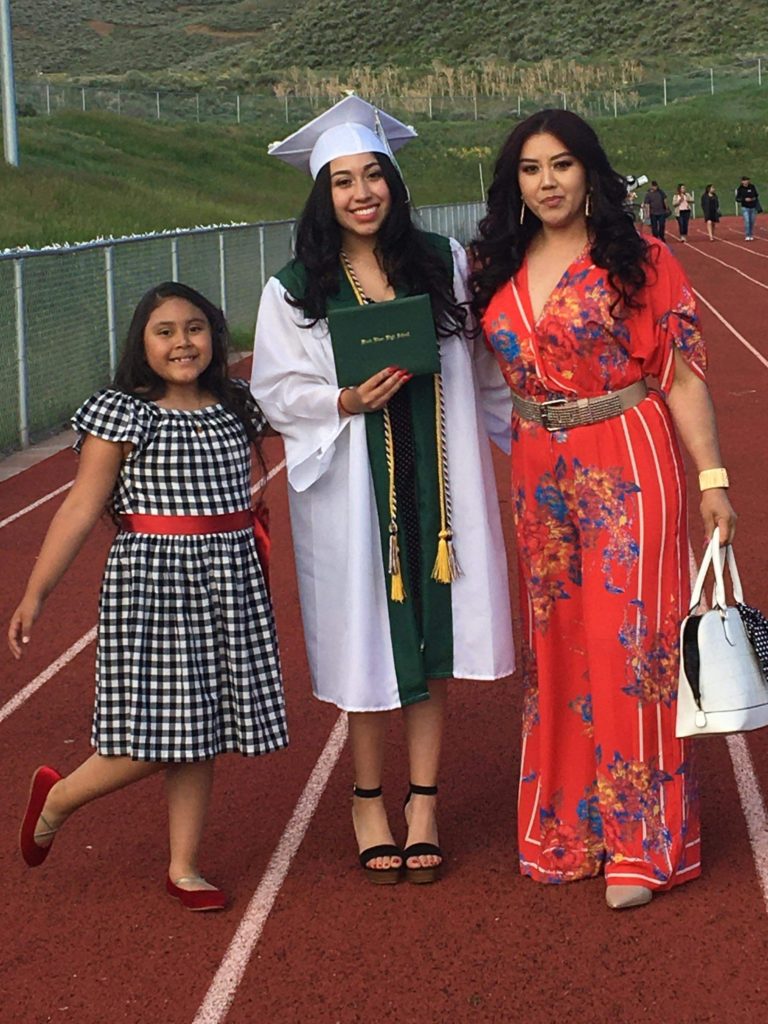My name is Diana Sabrina Muñoz, the Summer Programs Intern at The Community Library.

On the night of June 16, 2022, Ali Noorani, the current Program Director of the William and Flora Hewlett Foundation’s U.S. Democracy Program, and Former Chief Executive Officer and President of the National Immigration Forum, and author of truly impactful book Crossing Borders: The Reconciliation of a Nation of Immigrants, presented a program at The Community Library.
He was joined by Bob Naerebout, former executive director of the Idaho Dairymen’s Association, and ZeZe Rwasama, Director of the College of Southern Idaho Refugee Program united for a discussion about immigration, specifically here in Idaho. (Watch the video replay of this presentation here.)
I was given the honor of introducing this program. When asked if I would be willing to introduce Ali Noorani, and as I read Crossing Borders, I got increasingly excited. Not only because I would be able to have conversations with the former CEO and President of the National Immigration Forum, but because I knew he could reach an audience more than I ever could.
Below is part of my introduction to that event.
###
This is my third time interning here at The Community Library, and I honestly have never been so excited for a program. As the daughter of immigrants, who traveled here to the United States from both Guatemala and Mexico over 20 years ago along with other family members, I have personally seen the struggles of being both a legal and illegal immigrant, in not only my own family but among my peers. I have also experienced firsthand the privilege of being a United States citizen.
Immigration is a topic close to home, not only to me, but to all of you who reside here. According to the Blaine County School District website, 43.4% of the district student population is categorized as “Hispanic,” a statistic reflected visibly in Blaine County as a whole. As a graduate of Wood River High School who obtained all my K-12 education in Blaine County, I can say with great confidence that many of my fellow Latinx/Hispanic peers here in the Wood River Valley are either immigrants, or they have at least one parent if not both who are immigrants, or immigration is a part of their family in other ways.

Throughout my high school career, now college, and in my time here in the Library, I have worked on various projects in effort of expanding diversity, equity, and inclusion, and most importantly sharing experiences both good and bad as a Latinx student and community member. With the work I have done in regards to the issue, I like to think I have impacted people, but there is so much more to be done, so much more to learn about before an impact larger than myself can become a reality.
Many ask why do so many immigrants come to the United States. This is one of the many topics Crossing Borders explains. Struggles that immigrants face in their home countries, struggles that my own mother has told me stories about, struggles that push and force migrants from Latin America out of their countries with no choice but to travel North to the Mexico-US border. Stories that, if read with an open mind, will help people understand the what and why.
I urge everyone to pick up Crossing Borders: The Reconciliation of a Nation of Immigrants here at The Community Library, where the complexities of migration are presented through stories of families fleeing not only from violence and poverty, but even their own governments, and the difficult living conditions that are sometimes tolerated by their own home countries.
It is your problem, it is my problem, it is our problem.
If you are more of a TV-watcher, I also urge you to watch “Immigration Nation”, a docu-series that shows the brutal realities and fear immigrants faces in regards to Immigration and Customs Enforcement (ICE), a fear all too familiar in my family as well. I also urge you to watch another docu-series called “Living Undocumented,” where the lives of undocumented immigrants and families are shown along with their fears and realities of being deported, being separated from their families, their siblings, their wives or husbands, their kids, who sometimes have not even reached teen hood. Both docu-series are available on Netflix.
Even after this program I not only hope but beg you all take the time to learn more on the topic of immigration as it is a topic so prominent, not only here in our community, but in the United States as whole. Immigration is unfortunately ugly, brutal, and ultimately a story of survival. But that ugliness and brutality within immigration that I have witnessed, which has affected countless families including my own, can all be changed with education by reading books, hearing stories, and changing policy, to ultimately reveal the incredible and gorgeous features of culture and so much more immigration has brought to this country, and to reveal the inspiring and impactful stories of survival and success immigrants have here in the United States.
###
I am daughter of immigrants who was lucky enough to have the privilege, like so many of you reading this, of being a United States citizen. Many of you do not recognize this privilege that many immigrants are not lucky enough to have.
You, most likely a U.S. citizen, most likely a white citizen, may not even give an afterthought to immigration. You may think that immigration does not affect you. But me, a U.S. citizen just like you, can strongly confirm that immigration affects me to a great extent, and not just because I come from a family of immigrants. But because I walk along immigrants every day, on my way to class, in the grocery store, at a park, everywhere, and trust me you do, too.
Thanks to this country, my mother and family escaped a corrupt and violence-filled country. Thanks to this country, I can obtain higher education, and I am able to say that I am a first-generation college student. But I also know that we live in a country that has hatred woven into its history and its present.
It is mine, yours, and our decision whether we want our children to grow up in a country where not everyone is accepted for who they are or for where they come from. It is our decision if we want to live in a country of discrimination, violence, and inequality. You may think that these things do not affect you, but they do. It is your problem, it is my problem, it is our problem. But it is you who needs to decide if you want to do something about it.
